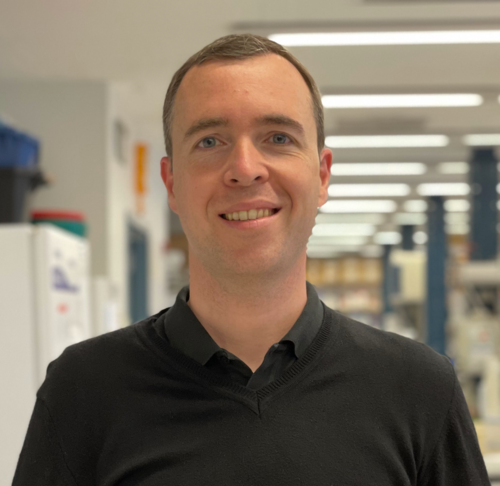
Dr. Rouanne is a physician-scientist trained in surgery (M.D.) and cancer immunology (Ph.D.) at the University of Paris. His scientific research has focused on bladder cancer immunology and immunotherapy. He is currently an associate research scientist in the laboratory of Dr. Nicholas Arpaia in the Department of Microbiology and Immunology at Columbia University Irving Medical Center (CUIMC). His project aims to evaluate a novel therapeutic approach using engineered bacteria in preclinical mouse models of bladder cancer. His overarching goal is to translate discoveries in human cancer immunology into innovative therapeutic approaches for bladder tumors.

Dr. Downey’s research looks to better understand how respiratory infections like those caused by influenza viruses can damage the heart and increase cardiovascular disease risk and severity. He performs his research in the laboratory of Dr. Filip Swirski, which he joined in February of 2021. Previously, Dr. Downey obtained his BSc in Physiology and his PhD in Pathology from McGill University in Montreal, Canada. There, he focused on host defense to the pulmonary pathogens influenza A virus and Mycobacterium tuberculosis.
“Why did you want to become a scientist and when did you know this was your path in life?”
I never necessarily knew that science could or would become my career, but I have always been fascinated by the basic workings of the body during both health and disease. As I continued studying biology, I grew more and more engrossed and kept finding new opportunities to follow that passion. Ultimately, I ended up researching full time and contributing studies to our collective knowledge and I couldn’t be happier!
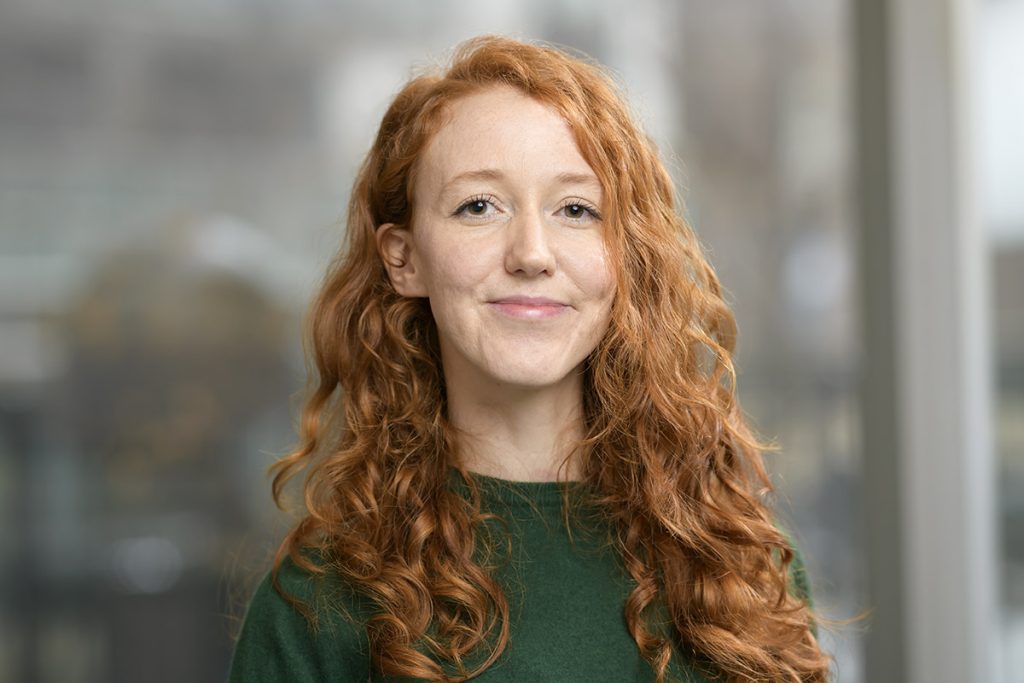
Dr. Benito Kwiecinski’s research investigates the mechanisms that regulate the remarkably slow maturation of human neurons compared to other mammals. By developing novel human-mouse hybrid models of neurodevelopment, she aims to illuminate how species-specific transcriptional networks and environmental factors influence the tempo of neuronal maturation, with implications for evolutionary biology and disease modeling. She holds a BSc in Biomedical Sciences with Honours in Neuroscience from the University of Edinburgh and earned her PhD in Biological Sciences from the University of Cambridge, where she conducted research under the supervision of Dr. Madeline Lancaster at the MRC Laboratory of Molecular Biology (LMB).
“Why did you want to become a scientist and when did you know this was your path in life?”
Curiosity has always been my driving force. As a child, I would spend hours observing ants and was captivated by nature documentaries, marveling at how different species evolved such complex specialized behaviors to survive. This early fascination with behavioral diversity grew into a deeper scientific curiosity about the organ orchestrating it all – the brain. During my Neuroscience-focused undergraduate studies, I became increasingly interested in developmental neurobiology and the early differences that result in such vast variations in brain size and function across mammals. I was excited to discover we could model and functionally interrogate human brain development using stem cells, and knew I wanted to pursue a career studying human-specific features of neurodevelopment.
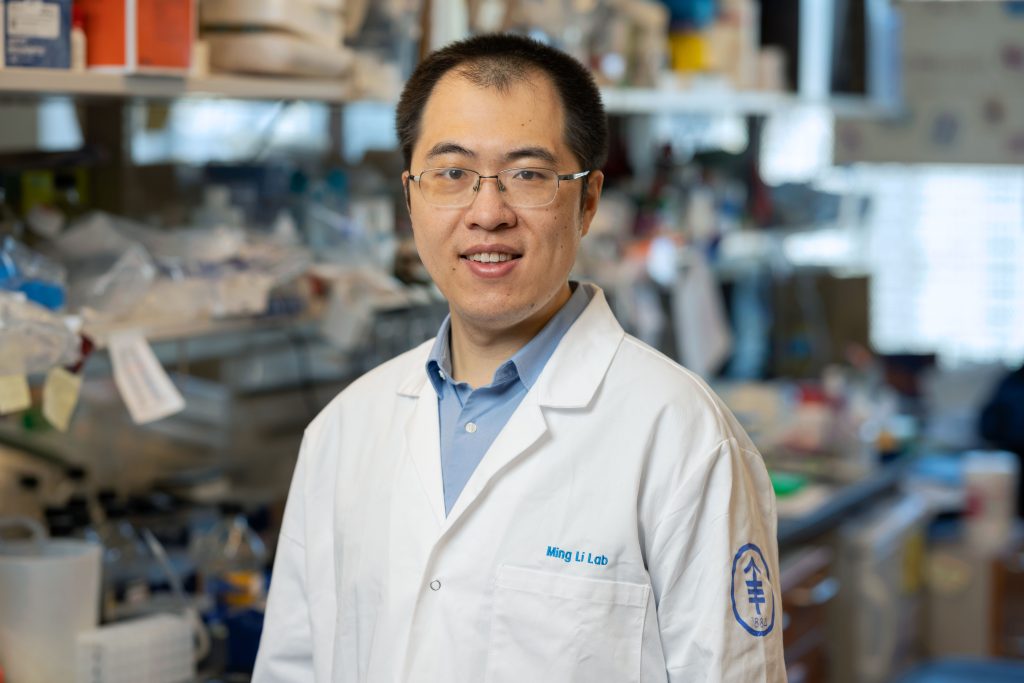
Dr. Xu’s project focuses on studying how tissue-resident lymphocytes contribute to preventing ovarian cancer relapse. The goal is to develop new therapies to improve survival rates for ovarian cancer patients. He received a B.S. in Biological Science from China Agricultural University and later earned his PhD from the National Institute of Biological Sciences, Beijing.
“Why did you want to become a scientist and when did you know this was your path in life?”
Curiosity was my original motivation for entering the world of science. When I was a child, I was interested in the regional differences in the body, such as why hair mainly grows on the head while being sparse on other parts. These differences inspired me to believe that there are fundamental principles underlying highly complex living beings, and I wanted to uncover some of those principles myself.
At the PhD stage, I discovered that anatomically distinct fibroblast subsets determine body regional patterns in the autoimmune skin disease vitiligo. This discovery inspired me to pursue postdoctoral training and join Dr. Ming Li’s Lab at MSKCC. My postdoctoral project focuses on exploring immunosurveillance mechanisms that establish organ-specific metastatic patterns during ovarian cancer relapse and discovering new therapeutic strategies to treat metastatic ovarian cancer.

Dr. Henry’s research broadly focuses on evolutionary processes in complex systems. He currently investigate how host-microbiome interactions influence pathogen evolution. He received undergraduate degrees in biology and bassoon performance from Bard College, an MS in biology from Indiana University, and a PhD in ecology and evolutionary biology from Princeton University.
“Why did you want to become a scientist and when did you know this was your path in life?”
In my first semester as an undergraduate, I wanted something to do that was outdoors-y, and I saw an opportunity to get involved in ecological research. I had no idea what research would be like, but through the guidance of my fantastic undergrad advisor, I was shown how the biological world is a series of interacting pieces, where seemingly small players can have large impacts on the big picture. I was entirely captivated by this and the potential to make discoveries about the natural world. After a few years as a research technician, the joy and excitement from designing experiments to solve challenging problems in biology never went away, and I knew that I wanted to pursue a career in research.
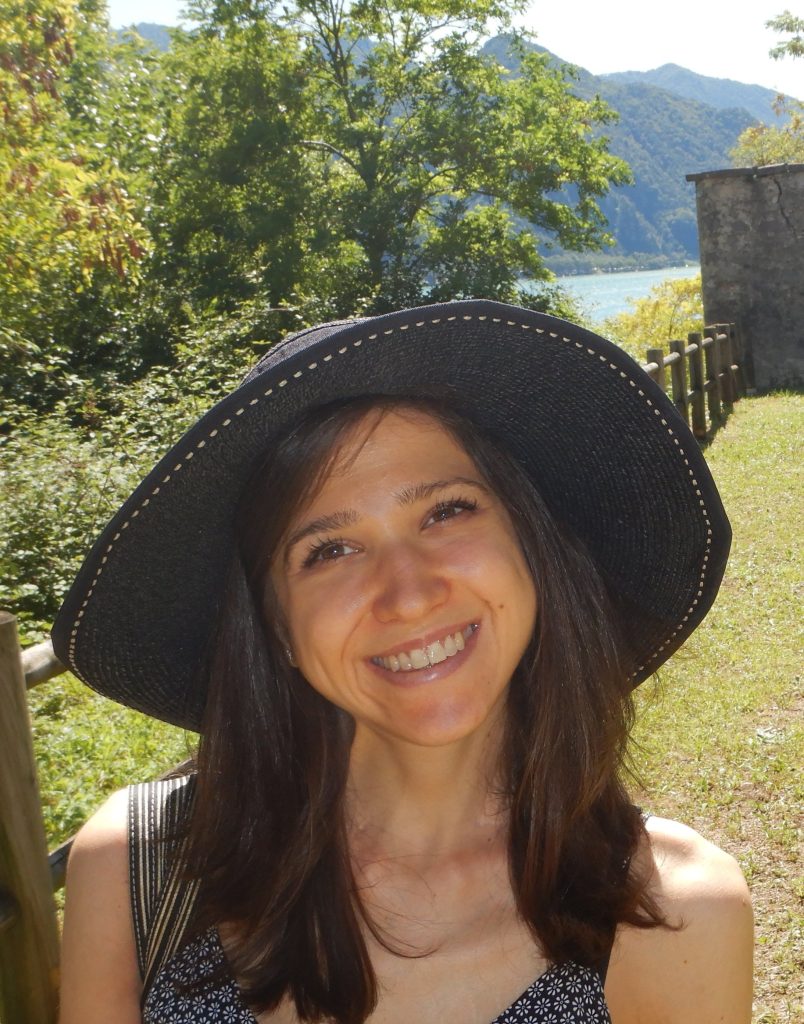
Dr. Gennari obtained her B.Sc. in Psychobiology and her M.Sc. in Neuroscience from the University of Padua, Italy. After a period as a research assistant in Dr. Floris de Lange’s lab at Donders Institute in the Netherlands, she joined Dr. Ghislaine Dehaene-Lambertz’s team within the Cognitive Neuroimaging Unit (UNICOG) of Neurospin in France. There, she employed high-density EEG to reveal the representational primitives used by the human brain at the very beginning of life, completing her Ph.D. in Cognitive Neuroscience in December 2021. Since 2022 she has been a postdoctoral fellow in Prof. Biyu He’s lab at the Neuroscience Institute of NYU. Her current research focuses on the temporal structure underlying perceptual awareness. Using Magnetoencephalography and intracranial EEG, she seeks to uncover the temporal organization of brain activity that drives the updating of conscious contents.
“Why did you want to become a scientist and when did you know this was your path in life?”
I was an overly curious toddler who grew into an overly curious child who grew into an overly curious teenager. Finally, as a young adult attending the first year of university, I came to a fundamental realization: nothing could captivate or fuel my curiosity more than the human brain. Whereas asking questions has always come naturally to me, it was during my first internship at the Erasmus Medical Center in Rotterdam (NL) that I fell in love with the scientific method – formulating hypotheses, crafting experiments, and generating high-quality data to uncover the most reliable answers. From that point forward, my purpose was clear: to pursue neuroscience research in hopes of contributing even a small but meaningful insight to humankind’s understanding.
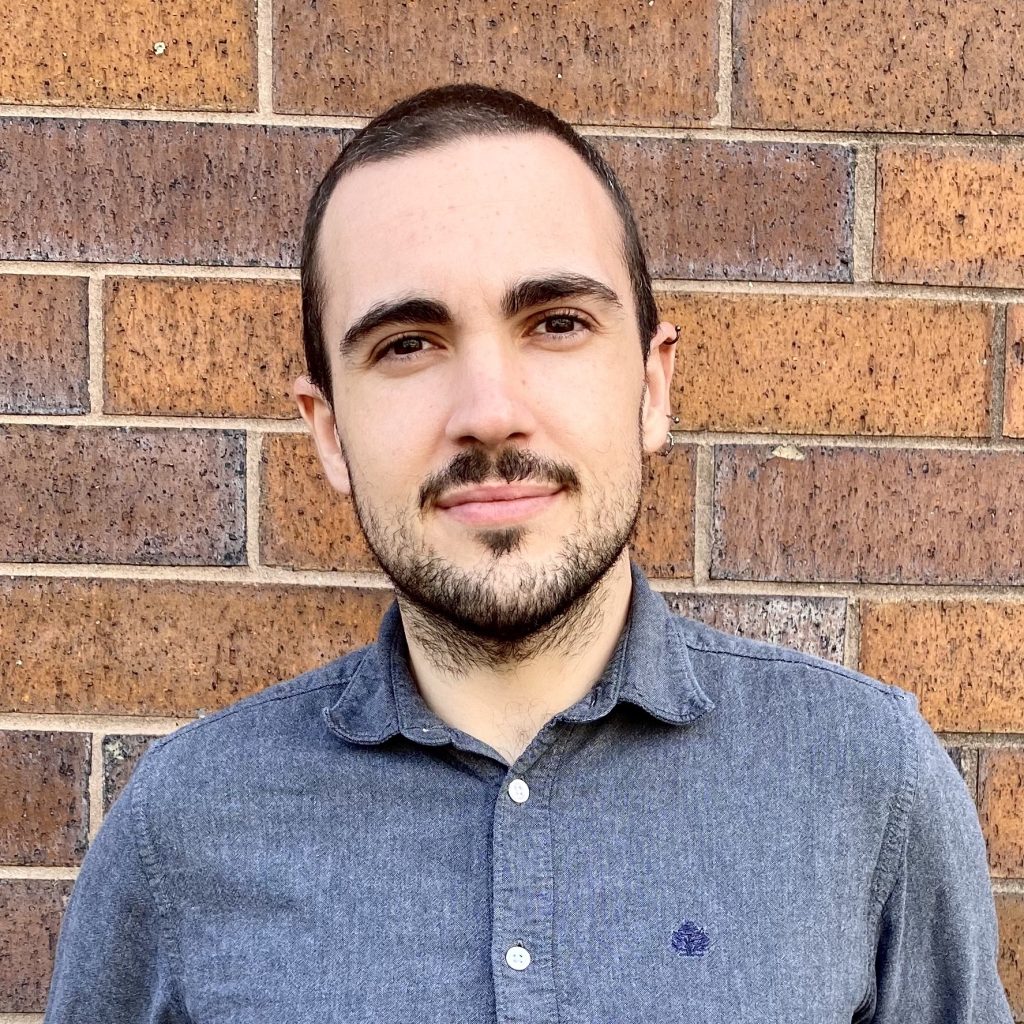
Dr. Jesus González-Hernández earned a BSc in Biology and an MSc in Biomedicine from the University of La Laguna (Spain), where their fascination with the brain’s bioelectrical signaling began. His PhD research in Neuroscience focused on the regulatory interaction between a voltage- and calcium-activated potassium ion channel and its different calcium sources. His work deepened his interest in the complexity of neuronal protein networks and the importance of studying them within their unique functional contexts. In Prof. Joshua Levitz’s lab, he study the signaling, desensitization, and neuromodulation of metabotropic glutamate receptors (mGluRs), currently focusing on identifying key proteins involved in mGluR-mediated presynaptic long-term depression. To achieve this goal, he utilize various techniques, including electrophysiology, photopharmacology, imaging, and proximity proteomics.
“Why did you want to become a scientist and when did you know this was your path in life?”
As stereotypical as it might sound, I’ve been captivated by science since I was a child. I vividly remember asking my parents for books on scientific topics that were often beyond my age, particularly in biology and physics. My interests were broad but focused, and I naturally gravitated toward exploring these subjects. I wouldn’t say there was a single moment when I knew this would be my path; rather, it felt like a gradual, inevitable progression that evolved naturally from an early age.
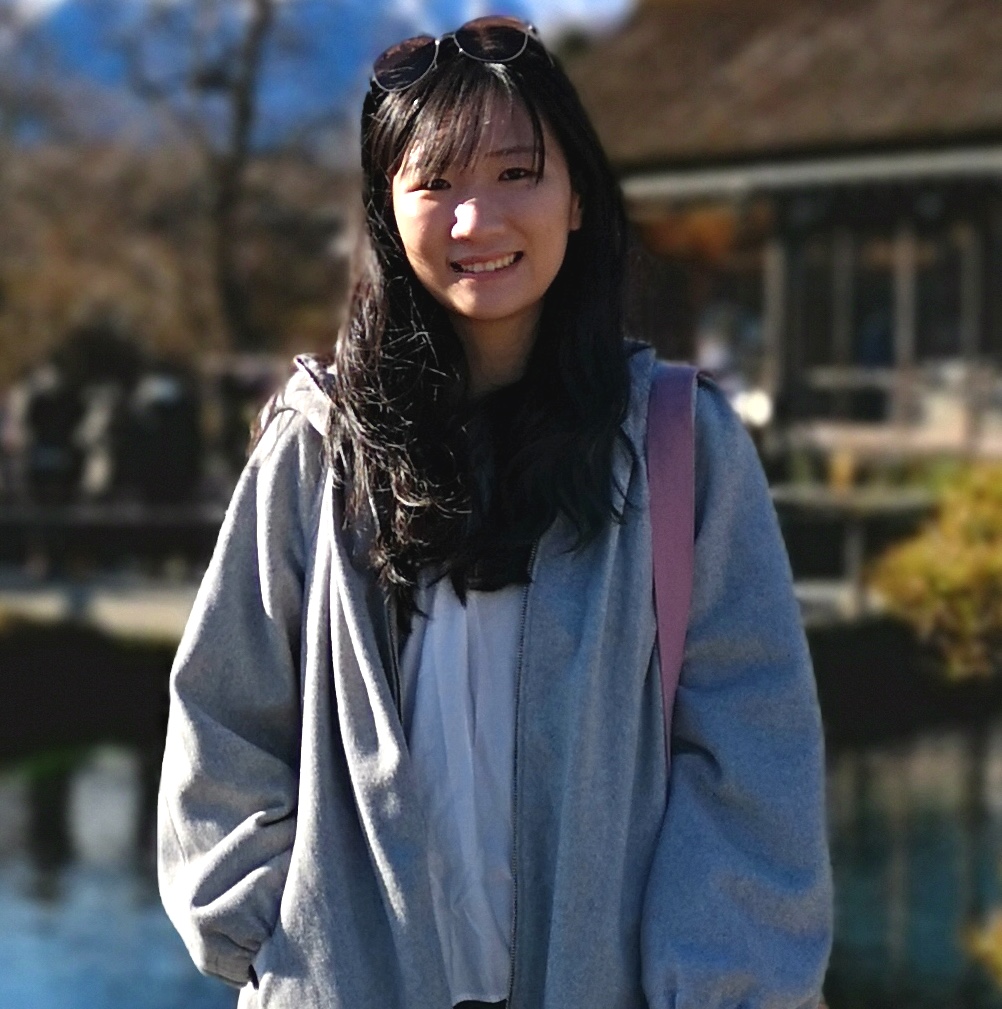
Dr. Wu received her Bachelor of Science (Honours, First Class) degree in 2017 and her PhD in 2021, studying how the glutamate transport and chloride channel activity are functionally and structurally integrated within the SLC1 transporters, with a focus on their physiological relevance under pathological conditions at the University of Sydney, Australia. She joined the Boudker Lab at Weill Cornell Medicine as a postdoctoral scientist in June 2021, where she further extended her skill set to various biochemical and biophysical approaches, including Single-molecule fluorescence resonance energy transfer (smFRET) and Cryo-electron microscopy (CryoEM), exploring the mechanistic relation between the conformational dynamics, atomic structures, kinetics, and pathology of membrane proteins.
“Why did you want to become a scientist and when did you know this was your path in life?”
When I was younger, I became aware of the many gaps in medical research, especially as friends and family members struggled with neurological disorders and cancer. At the time, I didn’t realize I could contribute to this field. However, during my undergraduate years, I had my first experience in a research lab. That moment sparked my curiosity and passion for science, and as I developed new skills to solve complex problems, my enthusiasm only grew. The joy I found in this work made me eager to dedicate a significant part of my life to it.
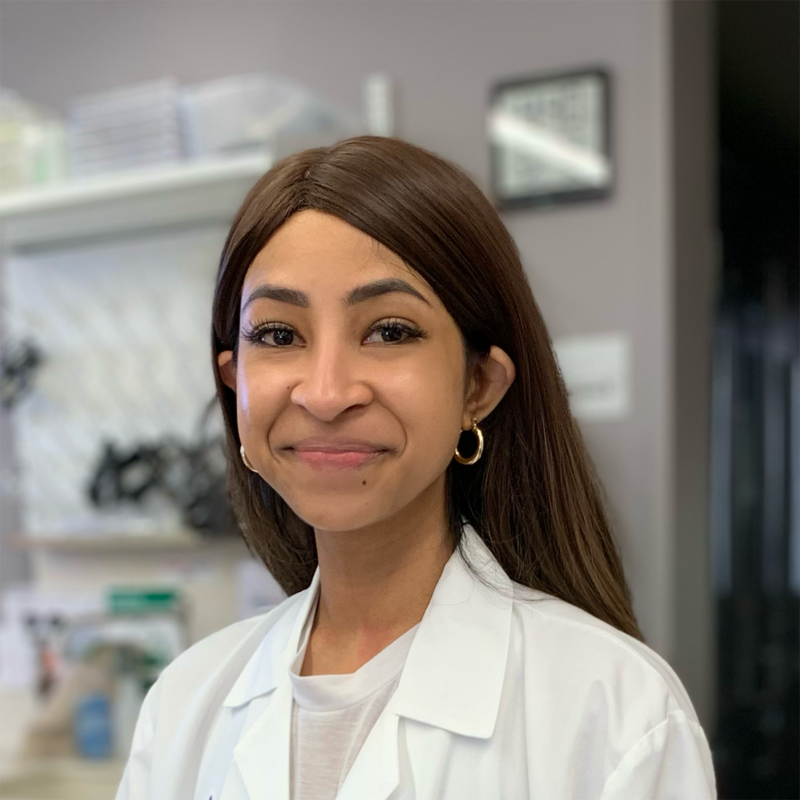
Sasha earned her bachelor’s degree at Columbia University, where she studied the molecular mechanisms of MDD and antidepressants using monkey models. She next pursued a Master’s degree in molecular biology and genetics at CUNY Hunter. For her Ph.D. at Mount Sinai, she joined the laboratory of HHMI Investigator Dr. Ian Maze to expand on her master’s training into the field of epigenetics – and specifically how experience shapes genomic regulation in the context of MDD. For her postdoc, she is working with HHMI Freeman Hrabowski Scholar Dr. Ishmail Abdus-Saboor at Columbia University, who investigates how the skin communicates with the brain. As a postdoc in his lab, she is exploring the mechanistic basis of somatosensory plasticity during stress. Socially valanced touch has been shown to have anxiolytic effects and to attenuate stress related pathophysiology in a phenomenon called “social buffering”. In addition, a lack of social tactile stimulation, particularly during early life, can induce neurobiological changes associated with mood disorders. However, the cellular mechanisms by which social touch mediates stress resilience and affective states are unknown. Therefore, the primary goal of Sasha’s work is to use multi-omics profiling and in vivo imaging approaches to investigate the role of social touch somatosensory neurons in stress resilience and affective regulation during chronic stress.
“Why did you want to become a scientist and when did you know this was your path in life?”
My early experience in academic research set me on a path to understand how psychiatric disorders as diseases in the context of physiological disruption. I hope to make an impact in the community both with my scientific work and through dedicating my life to training the next generation of scientists.
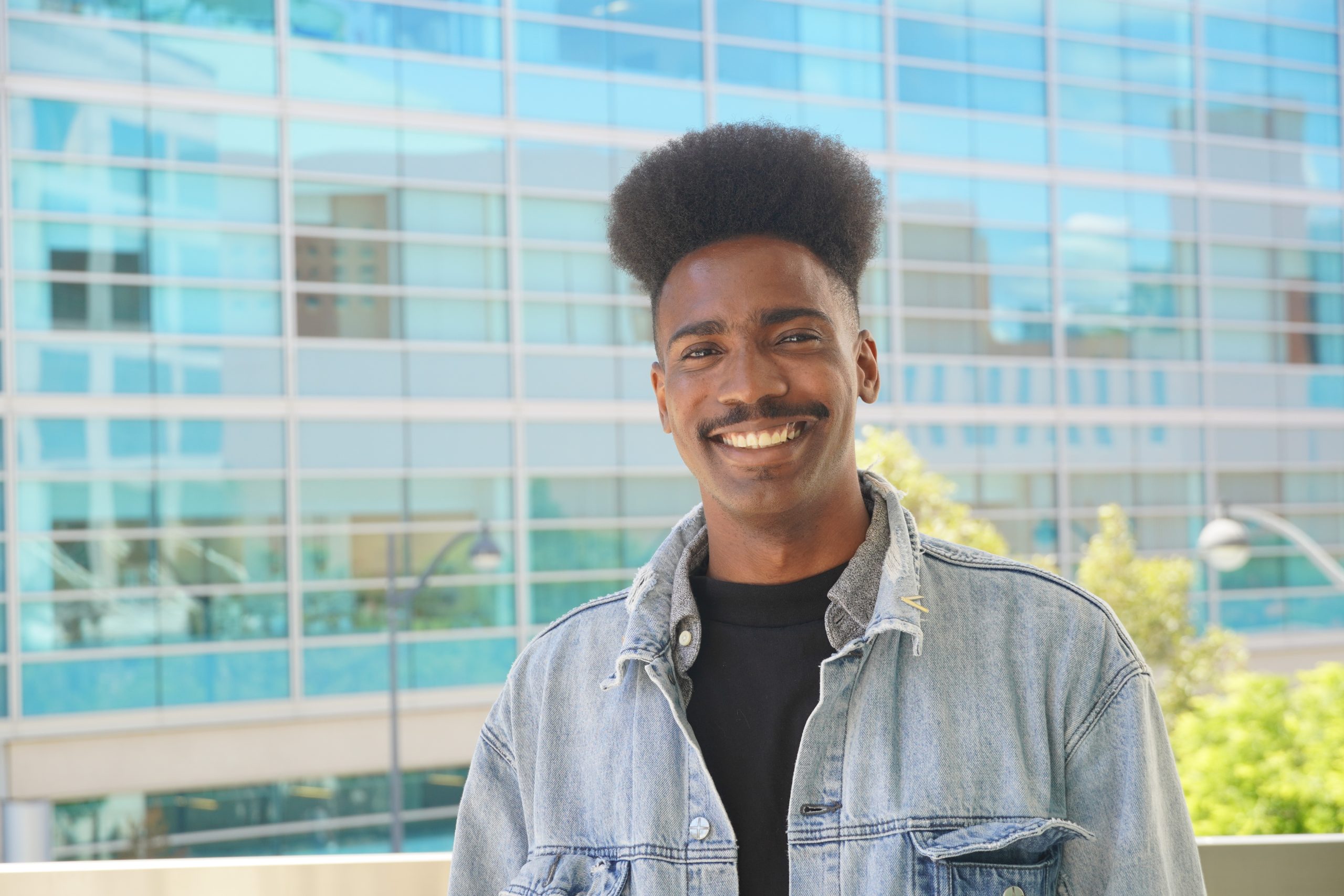
Chase Webb is a post-doctoral fellow in the T32 Schizophrenia Training program at Columbia University. Chase is mentored by Jonathan Javitch and conducts his research within the division of molecular therapeutics housed in the Columbia department of psychiatry. In the Javitch lab, Chase studies the biophysical basis of GPCR activation using super-resolution microscopy and other biophysical and pharmacological techniques. Chase obtained his PhD from the University of California at San Francisco where he was co-mentored by Aashish Manglik and Brian Shoichet. During his doctoral studies as an NSF graduate research fellow, Chase investigated the chemical and biophysical basis of opioid receptor activation, culminating in the discovery of a congeneric series of novel opioids with reduced side effects and abuse potential. Before matriculating at UCSF, Chase obtained his BS from St. Mary’s College of California and participated in the NIH PREP at Case Western Reserve University.
“Why did you want to become a scientist and when did you know this was your path in life?”
I knew that I wanted to pursue science as a career when I took organic chemistry in college. I loved the experimental workflows and found the theory extremely intriguing. As I continued in my educational pursuits, I was afforded the opportunities during my doctoral studies to participate in the bleeding edge of scientific inquiry, especially with respect to drug discovery. Now, I can’t imagine working a different job. I love the intellectual engagement, the ability to work with my hands doing interesting things, and the cool gadgetry involved with scientific inquiry. I hope to one day head my own lab so that I can study the biology I find most interesting and inspire and train the next generation of scientists.
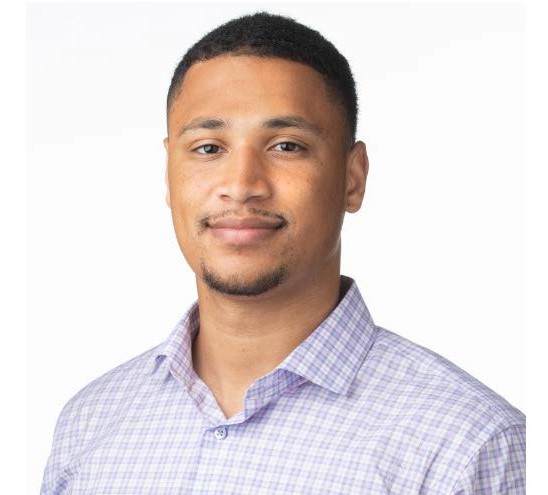
Joshua Gills is a Postdoctoral Fellow at the Aging Research In Sleep Equity & Dementia Prevention Program (ARISE-DP) & Healthy Brain Aging and Sleep Center (HBASC) in the Department of Psychiatry with Institute for Excellence in Health Equity aflliation in the Department of Population Health, and has a T32 Fellowship from the the Center for Cognitive Neurology at New York University’s Grossman School of Medicine. In 2022, Dr. Gills received his PhD in Health, Sport, and Exercise Science (Exercise Science Concentration) from the University of Arkansas, Fayetteville, AR. He also has received additional training in Gerontology, Cognitive Neuroscience, Sleep, and Health Disparities. The scope of Dr. Gills’ current and future research lies at the intersection of lifestyle modifications, aging, health disparities, and Alzheimer’s disease and related dementias (ADRD). His research investigates how fitness, sleep, and vascular risk impact cognitive decline ADRD risk health disparities in mid-to-late life underrepresented adults using novel neuroimaging and field-based approaches. Ultimately, Dr. Gills would like to utilize evidence-based mitigation strategies to improve neural resilience, cognition, and quality of life in underrepresented populations. Dr. Gills has been funded by government agencies and private organizations such as the NIH and the Borroughs Wellcome Fund. He has received several competitive awards and trainings including: AASM YIRF & SOAR, Alzheimer’s Disease Neuroimaging Initiative Health Equity Scholar’s Program, NYU ADRC’s REC Scholar, University of Arkansas’ Outstanding Ph.D. Student in Exercise Science Award, and American Kinesiology Association Outstanding Master Scholar.
“Why did you want to become a scientist and when did you know this was your path in life?”
My desire to become a scientist stemmed from a relentless curiosity about the unknown. From an early age, I participated in science fairs and completed different experiments in science classes that I thought were fascinating. However, this desire did not carry on past middle school. I re-discovered the passion for science upon entering graduate school while heading multiple studies. This sparked my career interest in science and led me to my current journey within Alzheimer’s disease.
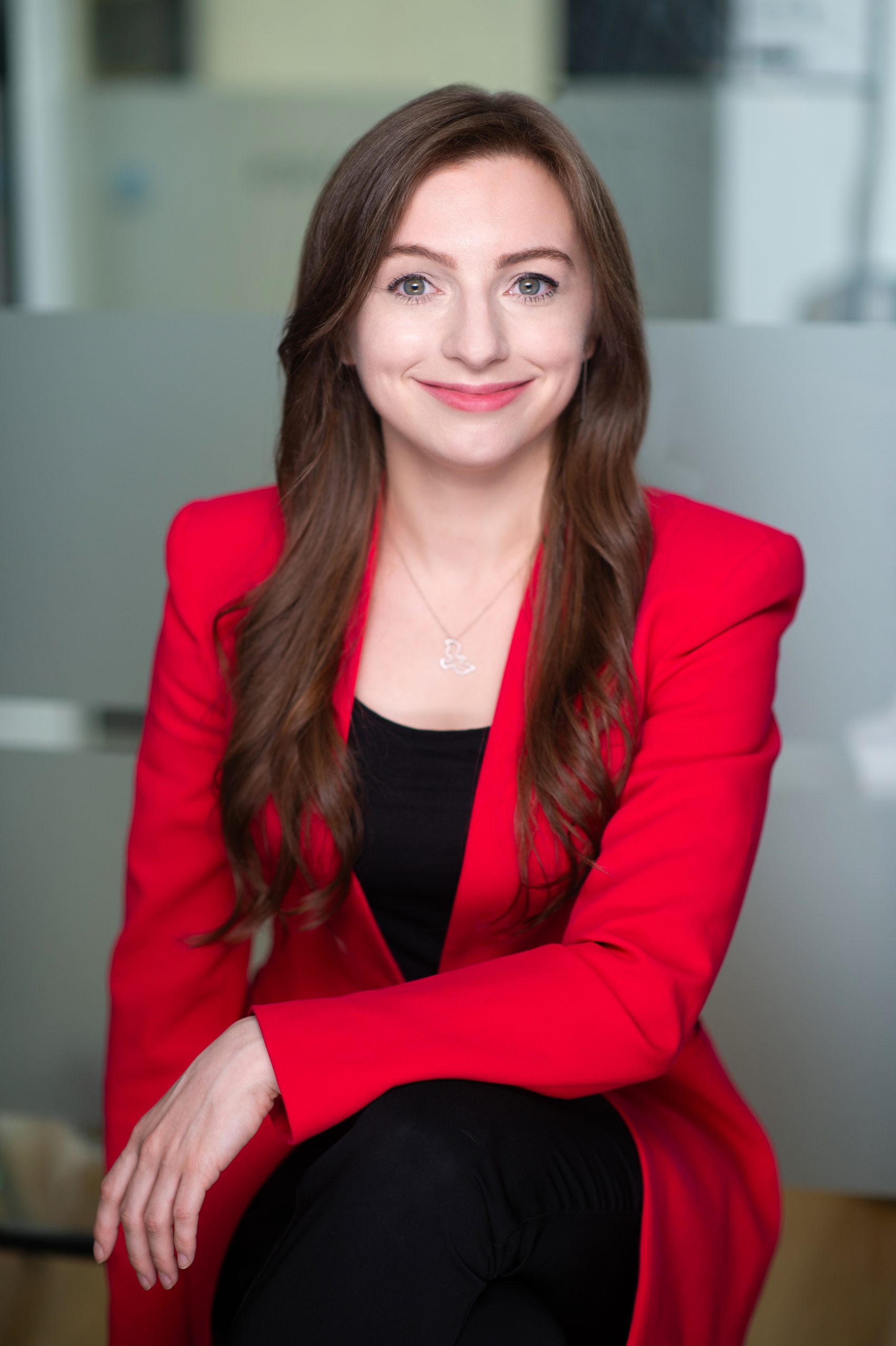
Dr. Amanda M. Buch is a Cuban American neuroscientist and Simons Foundation (SFARI) Independence Fellow at Weill Cornell Medicine who received her Ph.D. from Weill Cornell Medicine of Cornell University and has studied science diplomacy at Rockefeller University as part of the Hurford Science Diplomacy Initiative. She obtained her B.A. in Biophysics from Columbia University in 2014. During her doctoral research with Dr. Conor Liston, Dr. Buch pioneered a novel imaging transcriptomics approach for biological subtyping, and identified four distinct subtypes of autism spectrum disorder linked to distinct molecular pathways. In her postdoctoral work, Dr. Buch has developed novel cluster-aware embedding algorithms using machine learning and convex optimization in collaboration with Dr. Logan Grosenick. She is now deploying them for AI-informed precision neuropsychiatry. Her areas of research expertise include neuroimaging, machine learning, multi-omics, circuit neuroscience, behavioral neuromodulation, ultrasonics, and bioinformatics.
Her research and science communication have been featured by the American Association for the Advancement of Science, the Dana Foundation, and Story Collider, and she has published in academic journals including Nature, Nature Neuroscience, Neuron, Neuropsychopharmacology, AISTATS, and Science & Diplomacy. She is also a Leading Edge Fellow and NASEM/Ford Foundation Emeritus Fellow. Beyond her science endeavors, she is a visual artist and studies drawing and painting in the classical art tradition at Grand Central Atelier in NYC.
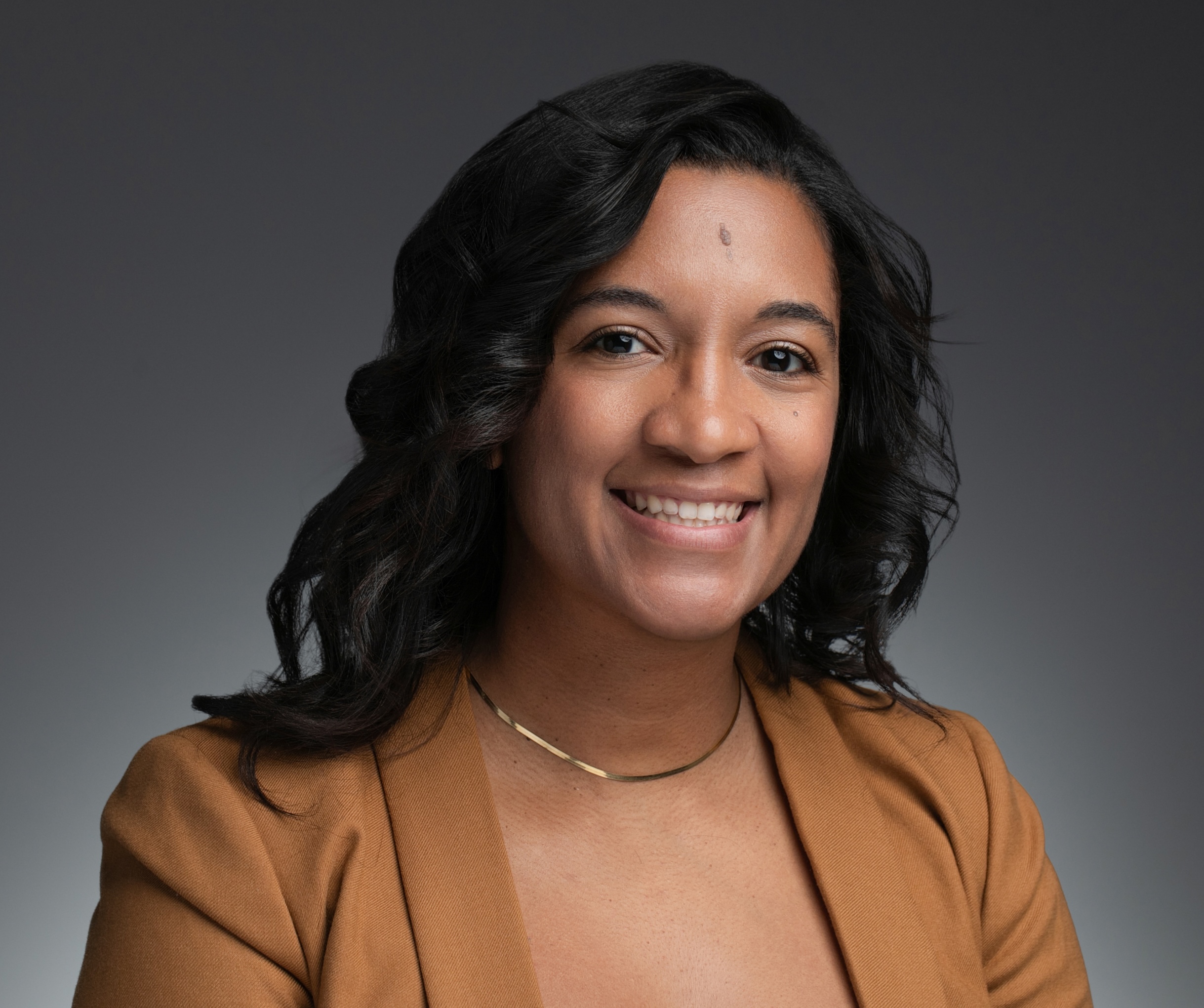
Dr. Noële Certain is a postdoctoral associate at Yale University and an NIH Blueprint Diversity Specialized Predoctoral to Postdoctoral Advancement in Neuroscience (DSPAN) Scholar. Dr. Certain’s current research is centered on understanding how molecular alterations contribute to the pathophysiology of neurodevelopmental disorders. Noële is dedicated to advancing neurotherapeutic approaches by understanding the fundamentals of brain development, function, and disease. Previously, Dr. Certain obtained her PhD in Molecular and Cellular Pharmacology at Stony Brook University, focusing on channel physiology of glutamate receptors in the Laboratory of Dr. Lonnie Wollmuth.
“Why did you want to become a scientist and when did you know this was your path in life?”
Since childhood, I’ve always loved to learn something new. I developed an early passion that involves constantly pushing my boundaries. During my undergraduate neuroscience course, I became fascinated with the intricate complexities of the brain, and I discovered through experimentation that we could bridge these gaps. I chose this path because being a scientist gives me so many opportunities to be curious, learn new skills and push boundaries to reveal novel ideas. Overcoming the challenges of scientific progress has helped to define the scientist I am today.